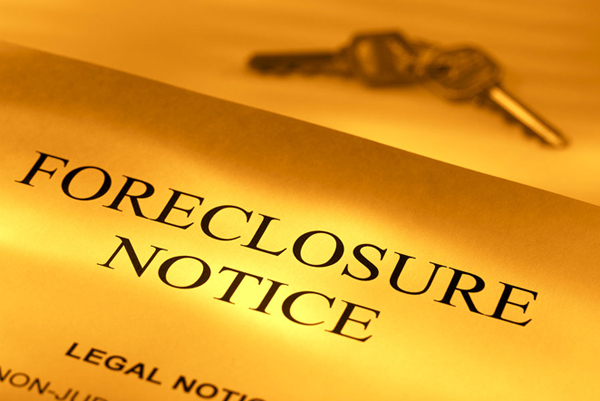Foreclosure Notices Trend Up, Repossessions Down


Initial foreclosure filings were 6 percent higher last month than in July 2011, according to RealtyTrac. Year-over-year, initial foreclosure notice filings to distressed homeowners has increased for three months in a row. Experts expect a continued uptick in defaults as the nation's largest banks enjoy more freedom from litigation following a nationwide settlement over industry-wide loan fraud.
Even as foreclosure proceedings increase, home repossessions are on the decline, says foreclosure listing site RealtyTrac. This is because lenders are now more likely to agree to short sales – a process where borrowers sell their homes for less than the value of their mortgage. In July, 21 percent fewer homes were repossessed than in July last year. On an annual basis, repossessions have been down every month for almost two years.
There are advantages for banks that avoid repossession. First, a short sale fetches, on average, $25,000 more for the lender than if the lender were to repossess the home and sell it as bank-owned. Then there is the issue of liability. Banks are now more likely to be scrutinized for fraudulent paperwork. From robo-signing to missing promissory notes, mortgage fraud accusations could cost civil damages if lenders are successful in completing foreclosures without dotting every 'i'.
In lieu of short sales, banks are also increasingly offering loan modifications or refinancing options.
Even though the estimated number of foreclosures to be completed this year is 13 percent lower than the 800,000 recorded in 2011, the overall increase in foreclosure starts are likely to cause further shock to the real estate industry by depressing the value of homes. USA Today offered this bleak outlook for homeowners looking to sell at fair market value:
The increase in foreclosure-starts could boost the number of homes that end up on the market at a sharp discount to other properties. That means, barring another outcome, many of the homes that entered the foreclosure pipeline in recent months could end up weighing down the values of nearby homes when they hit the market...
A stronger housing market could mitigate the impact of future foreclosures on home prices, and home sales are expected to end up ahead of last year. But many economists still say the market is years away from a full recovery.
The article also notes that the number of homes receiving foreclosure notices last month increased generally in states that require court action to foreclose. This includes Florida, New Jersey, Ohio and Illinois. In states like Arizona and California, where courts don't play a role in the foreclosure process, foreclosure notices decreased dramatically in July. Despite this, California had the nation's highest foreclosure rate last month, with .3 percent of households reporting foreclosure-related notices. That is more than twice the national average.


